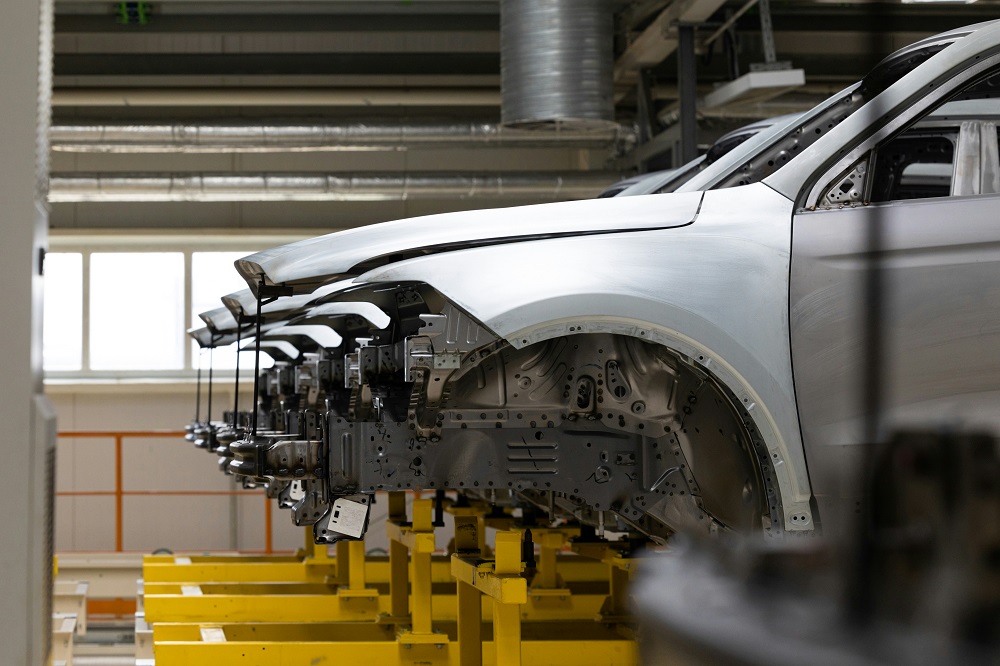The manufacturing industry is undergoing a transformation driven by technological breakthroughs and shifting global priorities. This age, known as Industry 4.0, introduces the concept of smart manufacturing, in which technology and innovation combine to reshape the production landscape. As we approach 2025, smart manufacturing approaches will become increasingly popular, driving efficiency, productivity, and sustainability across industries.
Smart manufacturing is more than a trend; it is a requirement for firms seeking to remain competitive. Companies that use data analytics for manufacturing can foresee trends, optimize operations, and make better decisions. Furthermore, smart manufacturing is consistent with global sustainability goals, incorporating ESG data services into its framework to reduce environmental effects while increasing output.
This article will discuss the future of smart manufacturing, exploring its foundations, technologies, and implications for the industry as we look ahead to 2025 and beyond.
What is Smart Manufacturing?
Smart manufacturing integrates digital technology at every level of the manufacturing process. Unlike conventional manufacturing, smart manufacturing uses interrelated networks and data to make processes more flexible, efficient, and environmentally friendly.
Key Characteristics of Smart Manufacturing
- Interconnectivity: Smart manufacturing systems use IoT devices to connect machines, people, and systems. This connection enables the flow of information and coordination at a high speed.
- Automation: Automated workflows require less human input, thus enhancing accuracy and efficiency. For example, robots in production lines can perform repetitive tasks with minimal error rates.
- Data-Driven Decision-Making: Employing data solutions with data analytics for manufacturing helps smart factory management to make data-driven decisions. This mitigates risks and enhances performance.
- Sustainability: Smart manufacturing integrates solutions that help minimize waste and maximize the use of resources, hence enabling the achievement of sustainable goals. This is in line with the two ESG data services, which require environmental and social governance compliance.
Benefits of Smart Manufacturing
- Improved product quality and consistency.
- Predictive maintenance helped to reduce production downtime.
- Enhanced worker safety and ergonomics.
- Greater flexibility in responding to market demands.
Read more: Latest AI Trends of 2025 Everyone Must Be Ready For
The Role of Smart Factory Industry 4.0 in Transforming Factories
The concept of smart factories in Industry 4.0 is critical to the advancement of manufacturing. A smart factory uses cyber-physical systems, advanced robotics, and artificial intelligence (AI) to create a production environment in which machines interact and collaborate without human involvement.
-
Automation and Efficiency
Smart Factory Industry 4.0 uses advanced robots and IoT to automate regular processes, lowering human error and increasing operating speed. Automation improves processes and productivity by doing repetitive operations around the clock. This results in cheaper costs, fewer errors, and more streamlined procedures, which considerably improve production efficiency and productivity.
-
Real-Time Data Analysis
Real-time data constantly informs the decisions made in a smart factory, and this information continues to be informed and collected by connected devices. This data gives plenty of operational information, which, when analyzed, allows for immediate steps to be taken based on the numerous insights. This then allows the manufacturers to enhance their production processes, quality control systems, and waste management systems.
-
Predictive Maintenance
Smart factories use IoT sensors and data analytics to monitor equipment conditions. These technologies save maintenance costs and unwanted downtime by predicting problems ahead of time. Early detection of possible difficulties ensures easier operations, longer equipment lifespan, and uninterrupted production.
-
Supply Chain Optimization
Industry 4.0 improves the supply chain by allowing manufacturers to obtain real-time tracking, forecasting, and insights. This helps with managing stock, minimizing stockouts, and optimizing logistics. The inclusion of smart technologies means factories can quickly adjust to supply chain issues, refine demand planning processes, and build responsive and efficient supply chains.

-
Sustainability Goals
Smart factories play a crucial role in meeting sustainability goals by utilizing data and technology to cut down energy usage, decrease waste, and improve resource consumption. Manufacturers can use ESG data services to assess and mitigate their environmental impact. This helps to promote green manufacturing, enhance companies’ social responsibility, and correspond to the world’s sustainability goals.
Key Technologies for Smart Manufacturing Industry 4.0
The integration of advanced technologies highly influences smart manufacturing and Industry 4.0 revolutions. Such innovations allow industries to evolve from traditional to automated and efficient operations that can respond to the needs of the market. As we head to the year 2025, these innovations will be at the forefront of the evolution of the manufacturing industry. Here are the core technologies that are shaping the smart factory Industry 4.0.
-
Internet of Things (IoT)
The Internet of Things (IoT) is crucial for smart manufacturing. It encompasses the installation of sensors and devices into machines and other equipment, enabling communication and sharing of information and establishing leadership in critical decisions such as the manufacture of their tools. For example, IoT sensors can monitor machine health and performance, predicting when maintenance is required. Thus reducing unplanned downtime. The widespread use of IoT in smart factories enhances operational efficiency by making systems more responsive and proactive.
-
Artificial Intelligence (AI) and Machine Learning (ML)
AI and ML enable previously impossible levels of intelligence in manufacturing. These technologies examine massive volumes of data provided by numerous sensors and devices to identify patterns and trends that can improve industrial operations. AI and ML are particularly useful in predictive maintenance, where AI systems can forecast machine problems based on past data. Furthermore, AI may improve decision-making by offering insights into manufacturing processes, quality control, and supply chain management, allowing enterprises to constantly improve their operations.
-
Big Data and Advanced Analytics
Big Data and Advanced Analytics are critical to smart manufacturing Industry 4.0 because they enable the analysis of massive amounts of data collected throughout the production process. Manufacturers may use advanced analytics tools to derive meaningful insights from data, thereby improving manufacturing efficiency, quality, and supply chain operations. Big data allows businesses to evaluate past trends, discover inefficiencies, and optimize industrial layouts and production schedules. Advanced analytics, including real-time data analysis, aid in making quick choices, eliminating waste, and increasing total production floor productivity.
-
Cloud Computing
Cloud computing has become a critical technology in smart manufacturing because it provides a scalable and adaptable solution for data storage, management, and analysis. Cloud solutions trends enable manufacturers to securely store and readily access huge volumes of data generated by IoT devices and sensors. Cloud computing also enables real-time collaboration across geographically distributed teams, allowing for speedy decision-making and modifications to manufacturing processes. It also enables firms to scale operations without incurring large infrastructure costs, making it easier for them to adjust to changing market conditions.
-
Robotics and Automation
Automation and robots have long been a part of the manufacturing business, but advances in smart manufacturing and business 4.0 are pushing the limits of these technologies. Robots outfitted with AI and sensors can now perform difficult jobs more precisely and autonomously. These robots work alongside human workers in collaborative robotics (cobots), increasing efficiency and lowering the danger of human error. Automated guided vehicles (AGVs) are also rapidly being employed for material handling in industries, enabling faster and more efficient movement of products. The increasing use of robotics and automation improves efficiency, lowers labor costs, and increases safety in manufacturing operations.
-
Additive Manufacturing (3D Printing)
Additive manufacturing, or 3D printing, is a disruptive technology that enables manufacturers to create complex parts and components on demand. Unlike traditional manufacturing methods, which entail removing material from a solid block, additive manufacturing creates objects layer by layer. This technology enables the production of highly customized parts with detailed designs and minimal waste. In smart manufacturing, 3D printing can be utilized for rapid prototyping, small-batch production, and even on-site creation of spare parts, decreasing downtime and supply chain interruption. The adaptability of additive manufacturing is critical for responding swiftly to market demands and changes in product requirements.
-
Digital Twin Technology
Digital twin technology, a cutting-edge invention in smart manufacturing and Industry 4.0, generates a virtual version of actual assets, systems, or processes. A digital twin enables manufacturers to replicate real-world scenarios, track performance, and optimize processes remotely. This technology is especially beneficial for predictive maintenance since it allows manufacturers to monitor machine health and anticipate probable breakdowns before they happen. In addition, digital twins provide insights into production processes, allowing for the optimization of workflows and reducing inefficiencies. Companies can make enhancements and test adjustments on virtual production lines without disturbing actual operations.
-
Edge Computing
Edge computing is a new technology that processes data closer to its source rather than depending on centralized cloud servers. In smart manufacturing, edge computing is used to evaluate and act on data generated by IoT devices in real time on the factory floor. Edge computing minimizes latency by processing data locally, allowing for faster decision-making and more overall efficiency. This technology is especially useful in situations that require fast responses, such as machine malfunctions or safety hazards. Edge computing also reduces bandwidth costs and enhances manufacturing dependability by allowing devices to work even without a continual internet connection.

Challenges for Smart Manufacturing and Industry 4.0
The move to smart manufacturing and Industry 4.0 provides enormous opportunities for growth and efficiency, but it also presents its own set of obstacles. Understanding these challenges and understanding the associated opportunities can help firms traverse this transformative phase more effectively. Given below are key challenges and opportunities for smart manufacturing and Industry 4.0:
-
High Initial Investment Costs
The adoption of smart manufacturing technologies that include IoT and AI robotics often requires large investments in hardware, software, and infrastructure. For small and medium-sized enterprises, these expenses can be a barrier, compromising their competitiveness with other larger firms that are financially stable.
-
Data Security and Privacy Concerns
With the increasing interconnection of devices and systems, smart manufacturing and Industry 4.0 are subject to cyberattacks such as data breaches, ransomware, and industrial espionage. Manufacturers must prioritize the security of sensitive information and comply with data protection rules such as GDPR.
-
Workforce Skill Gaps
The transition to smart factories Industry 4.0 necessitates a workforce with advanced abilities in data analytics, programming, and machine learning. However, many workers in traditional manufacturing lack these technical competencies, resulting in a substantial skills gap that businesses must close through training and education.
-
Integration Challenges
Integrating new technology into current industrial systems is frequently complicated and time-consuming. Legacy systems may be incompatible with new technologies, necessitating considerable adaptation and alterations, which can cause delays in the implementation process.
-
Resistance to Change
Employees and management may hesitate to accept new technologies because they are concerned about job displacement or are skeptical of the benefits. Overcoming this reluctance needs open communication and explaining the benefits of smart manufacturing to all stakeholders.
-
Regulatory and Compliance Issues
Adopting smart manufacturing technologies frequently requires navigating complex regulations and standards. Keeping up with compliance regulations, particularly when operating in different areas, can be difficult for manufacturers.
Opportunities for Smart Manufacturing and Industry 4.0
-
Increased Operational Efficiency
Smart manufacturing Industry 4.0 technologies, such as AI and IoT, improve production processes and reduce downtime and waste. These improvements lead to cost savings and increased productivity, giving firms a competitive advantage in the market.
-
Enhanced Supply Chain Management
Manufacturers can improve their supply chain visibility by using supply chain analytics and real-time data. This allows them to estimate demand, cut inventory costs, and respond swiftly to disturbances, resulting in a more efficient production process.
-
Personalized Manufacturing
3D printing and digital twins enable producers to offer highly customized products at scale. This trend to mass customization enables businesses to respond to unique client preferences, resulting in new revenue streams and increased customer satisfaction.
-
Sustainability and ESG Alignment
Smart manufacturing promotes environmental sustainability by lowering energy usage, decreasing waste, and increasing resource efficiency. Manufacturers can also link their operations with ESG consulting services to meet stakeholder expectations of sustainability and corporate responsibility.

-
Improved Decision-Making with Data Analytics
The use of data analytics in manufacturing offers real-time monitoring and insights. This enables producers to make data-driven decisions, foresee issues, and respond swiftly to changing market demands, resulting in agility and resilience.
-
Global Competitiveness
Manufacturers can compete effectively in global marketplaces by embracing technological trends and cutting-edge innovations. Embracing Industry 4.0 positions organizations as innovative leaders, enticing both customers and investors.
-
Job Creation in New Domains
While job displacement is a problem, smart manufacturing and Industry 4.0 also provide new opportunities in data science, AI development, and IoT maintenance. Upskilling the workforce can lead to higher-paying and more gratifying opportunities.
Read more: Real-time Predictive Outcome: Understanding the Impact and Benefits of Data and Predictive Analytics
Final Thoughts on Smart Manufacturing Industry 4.0
The future of smart manufacturing is full of promise. Manufacturers can achieve unprecedented levels of efficiency, agility, and sustainability by adopting the smart factory Industry 4.0 concepts.
As we approach 2025, technologies such as IoT, AI, and big data will become ever more integrated into industrial operations. This transition will not only improve operational efficiency but will also be consistent with broader aims such as sustainability and corporate social responsibility, which will be supported by ESG data services.
Navigating the challenges, such as high initial expenses and cybersecurity threats, demands careful planning and smart investment. However, the opportunities—ranging from better supply chain management to enhanced data analytics for manufacturing—far exceed the challenges.
The future of manufacturing is undoubtedly smart, and companies that embrace this change will set the standard for innovation, sustainability, and global competitiveness. Manufacturers should prepare for a thriving, technology-driven future by integrating data solutions, implementing the newest tech trends, and harnessing supply chain analytics.
A leading enterprise in Data Analytics, SG Analytics focuses on leveraging data management solutions, predictive analytics, and data science to help businesses across industries discover new insights and craft tailored growth strategies. Contact us today to make critical data-driven decisions, prompting accelerated business expansion and breakthrough performance.
About SG Analytics
SG Analytics (SGA) is an industry-leading global data solutions firm providing data-centric research and contextual analytics services to its clients, including Fortune 500 companies, across BFSI, Technology, Media & Entertainment, and Healthcare sectors. Established in 2007, SG Analytics is a Great Place to Work® (GPTW) certified company with a team of over 1200 employees and a presence across the U.S.A., the UK, Switzerland, Poland, and India.
Apart from being recognized by reputed firms such as Gartner, Everest Group, and ISG, SGA has been featured in the elite Deloitte Technology Fast 50 India 2023 and APAC 2024 High Growth Companies by the Financial Times & Statista.

